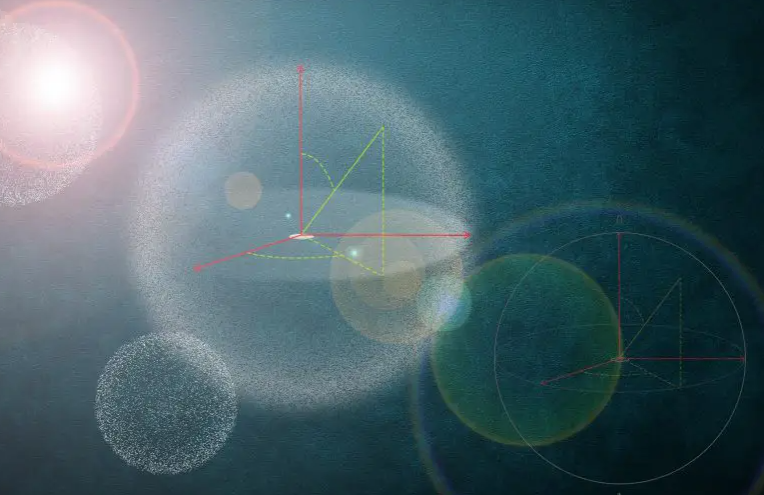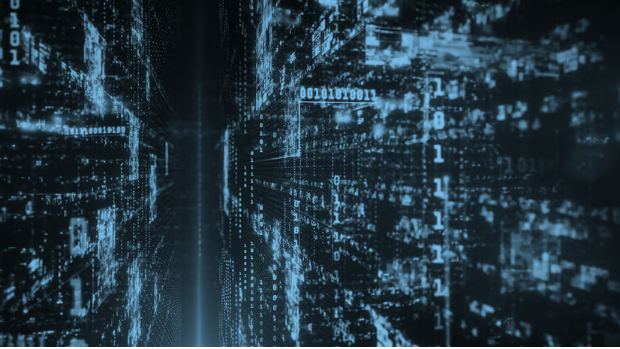What is a Benefit of Interference in Quantum Computing?
From quantum gates to quantum parallelism, the realm of quantum computing presents exciting, cutting-edge advancements poised to revolutionize our world. Among the most enchanting elements of quantum physics is the phenomenon of interference, a key player in quantum computing’s promise of unmatched computational power. But what is a benefit of interference in quantum computing? This is a question of paramount importance in our relentless pursuit to unravel the mysteries of the quantum realm.
The Quantum Dance: An Introduction to Interference

In the world of the tiny, governed by quantum physics, particles can exist in multiple states simultaneously, a concept known as quantum superposition. The behavior of these particles can best be understood as waves that ripple outwards. The true magic, however, occurs when these waves meet or “interfere.” Depending on the alignment of these ripples, they can either enhance or cancel each other, resulting in the alluring dance of quantum interference.
How Does Interference Enhance Quantum Computing?

So, how does this dance boost the power of quantum computing? Interference forms the heart of quantum algorithms, leveraging the rules of probability and wave behavior to manipulate information in ways classical computers simply cannot. The interference allows quantum computers to process and distinguish between various potential outcomes of complex calculations, strategically canceling out unwanted possibilities and amplifying the correct answers.
This ability of interference to manipulate probabilities is the essence of quantum speedup, providing a major benefit to quantum computers over their classical counterparts. Quantum speedup translates into enhanced computational efficiency, particularly for specific problem sets, leading us closer to quantum advantage and ultimately, quantum supremacy.
Interference: A Catalyst for Quantum Algorithms and Error Correction

The beauty of quantum interference lies in its versatility. It’s not just about speed; it’s also about accuracy and resilience. Interference plays a pivotal role in quantum error correction, enhancing the ability of quantum computers to recognize and rectify errors, a critical requirement for scalable quantum systems.
Moreover, the principle of interference is integrated into quantum algorithms such as Shor’s algorithm and Grover’s algorithm. These algorithms utilize interference to find the solution to problems faster than any classical algorithm, showcasing the true potential of quantum computing.
Harnessing Interference for Quantum State Manipulation
Interference isn’t just a bonus feature in the world of quantum computing – it’s integral to the very functioning of quantum gates. These gates are the building blocks of a quantum computer, used to manipulate the state of quantum bits, or qubits. They leverage the unique properties of interference to perform complex calculations, marking a leap forward in quantum information processing.
Implications of Interference in Quantum Communication and Cryptography
Beyond computing, the benefits of interference extend into the realm of quantum communication and quantum cryptography. Quantum interference has potential implications for developing secure communication networks, paving the way for unbreakable encryption protocols. This could revolutionize cybersecurity, ensuring safer online spaces and boosting trust in digital interactions.
Interference and Quantum Simulation
In the scientific and technological arenas, quantum simulation is an exciting frontier where quantum interference holds immense potential. Interference can help simulate complex quantum systems, providing unprecedented insights into areas like drug discovery and materials science, thus accelerating innovation and the march of progress.
The Challenges and Triumphs of Interference in Quantum Computing
Harnessing interference in quantum computing isn’t without its challenges. Maintaining quantum coherence – a delicate state where interference can occur – in a noisy environment is a major hurdle. However, as advancements are made in quantum technology, we’re inching closer to overcoming these obstacles.
Researchers around the globe continue to delve deeper into the possibilities offered by interference, accelerating our march towards a future defined by the power of quantum computing. These breakthroughs in understanding interference are sparking revolutionary improvements in computation speed, data security, scientific simulations, and so much more.
Interference: Unleashing Quantum Parallelism and Speedup
Interference doesn’t just make quantum computers faster; it unlocks a whole new world of computational possibilities known as quantum parallelism. Quantum computers use interference to explore many potential solutions at once. For a particular class of complex problems, this simultaneous exploration of a vast solution space can provide a quantum speedup over classical computation.
For instance, Grover’s algorithm, a quantum search algorithm, leverages interference to find an item in an unsorted database. In the classical realm, the task would take linear time, meaning that if the database doubled in size, the search time would double. However, Grover’s algorithm achieves this in the square root of the classical time, a result of constructive and destructive interference amplifying the right answer and cancelling out the incorrect ones.
This monumental speedup can offer solutions to problems currently deemed computationally infeasible. As such, interference could become the key to unlocking quantum speedup on a universal scale.
Interference: A Pillar for Quantum Error Correction
As we edge closer to realizing practical quantum computing, one stumbling block that scientists and engineers need to overcome is error correction. Qubits, the fundamental units of quantum information, are extremely delicate. The slightest disturbance can cause errors, leading to incorrect outputs. Here, interference plays a pivotal role.
Quantum error correction codes, like the surface code, use interference to detect and rectify errors. By encoding the information across multiple qubits and observing the changes, interference can help maintain the integrity of quantum information. These codes are instrumental in making quantum computing resilient and practical.
Interference and Quantum Cryptography: The Pathway to Unbreakable Security
One of the most exciting applications of interference in quantum computing lies in the realm of security – quantum cryptography. Quantum Key Distribution (QKD), a method of generating a secure communication channel between two parties, hinges on the principle of quantum interference.
In QKD, an eavesdropper trying to intercept the quantum key will invariably disturb the quantum state of the system. Thanks to interference, this disturbance becomes detectable, ensuring any attempt at interception is noticed. This empowers the creation of theoretically unbreakable encryption systems, bolstering security in an increasingly digital world.
Interference in Quantum Simulation: Probing the Unknown
Quantum simulation, another major application of quantum computing, involves the use of a quantum computer to model another quantum system. Interference is integral to this process, allowing scientists to probe and understand complex quantum phenomena that are currently beyond the reach of classical computers.
Interference allows quantum computers to model complex processes, such as high-temperature superconductivity or protein folding, which could lead to major breakthroughs in fields as diverse as material science, pharmaceuticals, and energy production.
Interference in Quantum Supremacy: Towards a New Era of Computing
In the pursuit of quantum supremacy, the point where quantum computers can solve problems that classical computers cannot, interference is an essential player. The sheer computing power promised by quantum computers can be attributed to interference’s capacity to enhance computational efficiency, open new possibilities for error correction, and enable secure communications.
As our understanding of interference deepens and our capability to control it improves, the goal of achieving quantum supremacy becomes ever more tangible. Harnessing the full power of interference will not only bring us closer to practical quantum computing but also unlock potential solutions to some of humanity’s most complex challenges.
Also Read: Do Bedrooms Have to Have Windows? [Enlist all Reasons & Suggestions]
Conclusion: Looking Ahead with Interference in Quantum Computing
Quantum interference, this strange yet incredible behavior of quantum particles, holds the potential to usher in the next revolution in computing. From enabling quantum speedup and parallelism, aiding error correction, fortifying cryptographic security, to advancing quantum simulation, interference stands at the heart of quantum computing.
Though challenges persist, the trajectory of quantum computing is crystal clear. As we continue to grasp, control, and utilize interference, we pave the way for groundbreaking advances in technology, science, and society. With each step in this journey, we edge closer to a new era, an era empowered by the unprecedented capabilities of quantum computing, all made possible by the marvel of quantum interference. To sum it up, the insights shared in this article about “What is a Benefit of Interference in Quantum Computing?” have sought to demystify the subject matter and provide you with a solid foundation for further exploration.


![How to Avoid Capital Gains Tax on Cryptocurrency? [Simple Ways 2024]](https://realmways.com/wp-content/uploads/2023/07/How-to-Avoid-Capital-Gains-Tax-on-Cryptocurrency-768x432.png)



